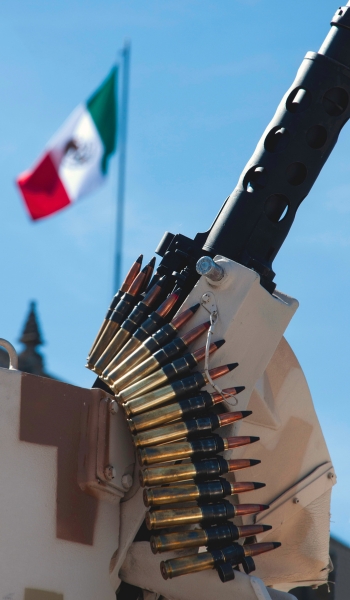Insecurity in Mexico has had a significant impact on the country’s economy over the past four years. Below are some of the main effects and statistics that illustrate this impact:
1. Direct Costs to Businesses

Insecurity has generated considerable direct costs for Mexican businesses. These costs include expenses on additional security measures, extortion payments, and losses due to theft. A study by the Confederation of Employers of the Mexican Republic (Coparmex) estimates that insecurity costs the business sector around 1.5% of the Gross Domestic Product (GDP) annually, which is approximately $6.8 billion (infobae) (Animal Politico).
2. Impact on Investment
The perception of insecurity has discouraged investment, both domestic and foreign. Potential investors often consider security a crucial factor before committing capital to a region. Areas with high levels of violence and criminal activity, such as Michoacán, Guerrero, and Zacatecas, have seen reductions in investment due to associated risks (Diario de México).
3. Losses in Tourism
The tourism sector, one of the most important for the Mexican economy, has also been affected by insecurity. Despite efforts to promote tourism, violence in tourist states such as Quintana Roo and Baja California Sur has generated concern. Tourists, especially international ones, may opt for destinations perceived as safer, negatively impacting the sector’s revenues (Animal Politico).
4. Business Displacement
In regions heavily affected by violence, some businesses have opted to close or relocate their operations to safer places. This results not only in direct job losses but also in a decrease in local economic activity and a reduction in tax revenues for local and federal governments (Diario de México) (Animal Politico).
5. Impact on Entrepreneurship
Insecurity also affects entrepreneurship and the creation of new businesses. Entrepreneurs in insecure areas face additional risks, such as extortion and theft, which discourage innovation and economic growth. Micro and small enterprises, fundamental to the local economy, are particularly vulnerable (Animal Politico).
6. Reduction in Consumption
Insecurity can lead to a decrease in internal consumption, as people limit their outings and recreational activities out of fear of becoming crime victims. This affects a wide range of sectors, including retail, dining, and entertainment services (infobae).
Conclusion
In summary, insecurity in Mexico has had a widespread adverse effect on the economy, affecting investment, tourism, business operations, and consumption. The persistence of these problems underscores the need for effective and sustainable policies to improve security and foster a more favorable economic environment.

